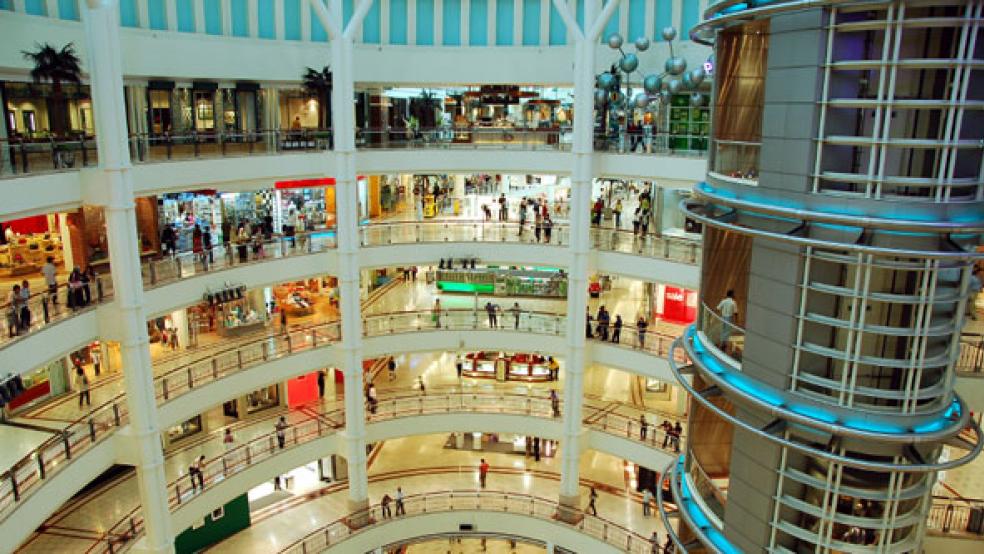The images of the four-day siege at the Westgate Mall in Nairobi, Kenya, are from half a world away, but they hit painfully close to home in the United States, which has more than 800 regional shopping centers.
"It's a frenzy of communications when something like that happens," said Bud Bradley, a vice president with AlliedBarton Security Services, one of the largest suppliers of shopping mall security personnel with some 12,000 officers.
RELATED: SHOCKING? STATES WITH MORE GUNS HAVE MORE GUN VIOLENCE
He said his phone began lighting up with calls from clients soon after the Nairobi attack began on Sept. 21. "Our mall customers want to know what we're doing, have we disseminated information—awareness information, as much as intel as we possibly could," Bradley told CNBC.
Bradley said the Nairobi attack strikes a nerve among those charged with protecting what law enforcement officials call "soft targets"—places like shopping malls and hotels that offer easy access to the public. "I think it's just a wake-up call. It's a reminder that it's a distinct possibility that this type of activity is going to continue."
HI-TECH PROTECTION: ARE YOU SAFE?
While major mall operators like General Growth Properties, Simon Property Group and Westfield Group have declined to discuss their security precautions after the Nairobi siege, the incident is a hot topic at a major security convention, ASIS 2013, going on this week in Chicago. Some 20,000 security professionals are discussing the latest trends in what has become a $350 billion industry according to ASIS International, which was founded in 1955 as the American Society for Industrial Security.
In a sprawling exhibit hall at Chicago's McCormick Place convention center, state-of-the art technology is on display aimed at stopping an attack before it begins.
Tyco Security Products, a unit of Tyco International, was showing off an integrated surveillance system that can help analyze patterns, allowing security personnel to pick out unusual activity.
Using images of convention attendees visiting the firm's booth, Director of Product Management Stephen Carney showed how the system creates a bar graph of the traffic patterns, with spikes when activity was heaviest. That could come in handy securing a mall.
RELATED: 19 UNBELIEVEABLE FACTS ABOUT GUNS IN AMERICA
"That might be a number of people milling about where they shouldn't, it could be going through a door the wrong way, any piece of data in my system can now be visualized, represented and show me the pattern that might allow me to act in ways that I might not otherwise be able to do."
The system can also combine real-time and recorded video to help authorities locate an active shooter in a mall. But the real aim is to prevent an attack from happening in the first place.
Jim McGinty, vice president of training and development at Covenant Security Services, conducts active shooter training for major corporate clients. He said particularly after the terror attacks at two hotels in Mumbai in 2008, mall operators are much more cognizant of the risks. "It's your security teams that are there. The CCTV, the camera aspect. The eyes in the sky. Looking for and being trained to recognize what might be a potential concern before it actually leaves the parking lot and makes entry into the mall."
Allied-Barton's Bradley agreed. He said his guards are no longer "mall cops," but highly trained officers who function like beat cops, always knowing who is coming and going. His firm is in regular contact with the U.S. Department of Homeland Security. In fact, he said, he learned about the Nairobi attack not from watching the news as he once would have, but from a bulletin he received under a joint program with DHS and the International Council of Shopping Centers. "We get these mobile alerts any time there is an incident at any shopping center around the globe."
Bradley said he quickly got all of his mall security managers on a conference call to remind them to be aware, and to remember their training. "We educate all the time. We talk about the subject all the time, since 9/11," he said. "We've been preparing for something to happen. It's just a matter of when."
But no matter how sophisticated the technology or how vigilant the security force, experts warn that a determined attacker will be able to do considerable damage, and they worry it is only a matter of time before a Nairobi-style attack is attempted in the U.S.
Michael Bouchard, a former U.S. Bureau of Alcohol, Tobacco and Firearms agent who is now an international security specialist with Sterling Global Operations, noted that leaves it up to shoppers to be vigilant, including making an escape plan in case of an attack. "It's tough for people to do this, but they need to run a scenario through their mind that mass gunmen come through here. What would I do? If you don't do those kinds of things and it happens, you tend to just freeze in place, and you might die."
This article originally appeared in CNBC.
Read more from CNBC:
Malls Mull Security Books After Nairobi Attacks
Kenya Widens Mall Attack Probe
Kenyan President: Mall Terrorists Defeated

